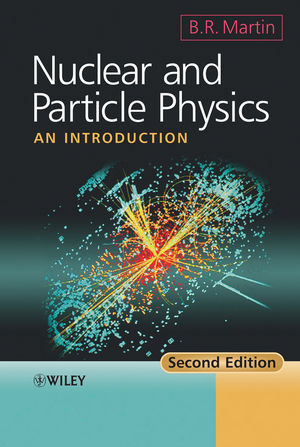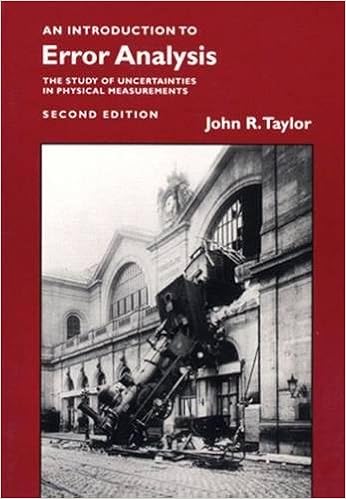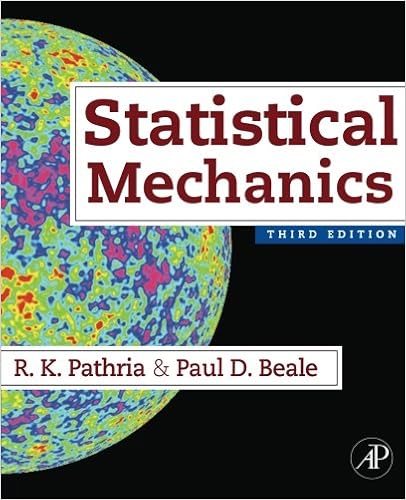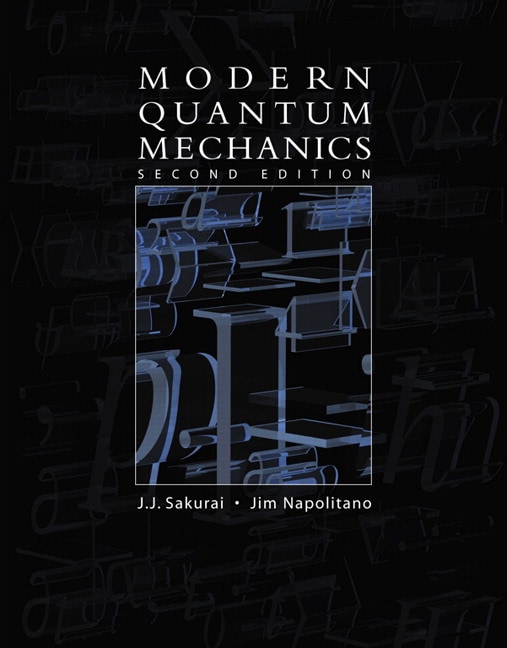BLΔCK⁂W⊙LF
All Star
I did complete a degree in Physics, so I can give information I utilized throughout the years to accomplish this task. I am creating this topic for those that may be interested in Physics. I think when it comes to science Physics is the best degree because it so versatile amongst the STEM degrees.
You can easily transition into an E.E. masters degree if you wanted because most Physics B.S. programs require you to take a plethora of engineering classes (at least my university made me take a few of them), and computer science courses (computer science is well integrated into the physics curriculum as well depending on the school).
Some benefits to my approach: you end up not only learning a lot more than even learned in school, but you also become more creative in solving all sorts of problems. This will undoubtedly have great impact whether you continue on in the sciences or decide a different route like business. The benefits outweigh the negatives - if there are even negatives.
Doesn't matter if you are old or young, this information can be utilized by anyone that is interested and should, in my opinion, be utilized by everyone. You're never too old to learn and grow.
----O----
Basic Math:
Pre-Algebra-College Algebra:
I don't know any good books on algebra but this website looks pretty promising for those that want to brush up or relearn pre-Algebra - Intermediate Algebra.
OpenStax
Trigonometry:
I used the book below for self-study. I never took a course on trigonometry, after Algebra II and self-taught Trigonometry I tested right into Calculus I after high-school.

Math:
I decided to learn math in a more rigorous manner as most, or a lot, of math today in most colleges isn't all that sophisticated and geared more towards rote memorization and not true understanding. The path I decided to go down helped me greatly.
"How to Prove It" by Velleman:
This book teaches you how proofs are constructed in math and how to begin writing your own mathematical proofs. The direct benefits is sharpening your mind when it comes to mathematical thinking and sophistication.

"Calculus" by Apostol:
I read this text after Velleman, and it reinforces concepts learned in Velleman by making you prove theorems and mathematical arguments. Volume I covers single variable calculus (Calc.I and II at most universities) and introduces complex variables (used a lot in engineering), differential equations, and linear algebra. Apostol Calculus also utilizes more physics throughout his text which is one of the reasons I like it so much. Some people will say it is more of an Analysis book, but its not imo, it is more thorough than the run-of-the-mill Calculus books like Stewart, but not as theory oriented as say, Spivak. It is a great textbook that I still use to this day as a reference.
Volume II gives one of the best treatments to multivariable Calculus that I've read and goes more in-depth into Linear Algebra and Differential Equations, and introduces Probability which is an added bonus.
Volume I

Volume II

If you need some help with Epsilon-Delta Proofs: https://www.ocf.berkeley.edu/~yosenl/math/epsilon-delta.pdf
After the first 8 chapters of Vol.I, you can start your study of Physics:
Beginning Physics
Classical Mechanics I:
This is my favorite book on Physics because of its depth and because I actually learned more from reading this book than during lecture. It is a bit advanced, but the authors do a sufficient job of teaching the motivated student what he/she needs to know.

There is a newer edition but they took chapter 5 out because they felt it confused students that hadn't taken multi-variable calculus yet, but it didn't confuse me.
You should be completed with Apostol Calculus vol.I upon nearing the end of this book. You can skip the Special Relativity sections as well because they don't give a modern treatment.
Special Relativity:
If you skipped the S.R. sections in K&K, then this book would be a better edition. I was able to read the 'table of contents' and it pretty much covers the same material in his "Introduction to Mechanics" text which I have and read.

Classical Mechanics II - Electricity and Magnetism:
This book is one of the best books on E&M, and I'd even go as far to say it is much better than upper undergraduate E&M books like Griffiths, but Griffiths covers a bit more material. You need to read the special relativity book before reading this book. In chapter 5 he will show you how the magnetic force is a consequence of special relativity and electricity.

for Math, you should be reading Vol.II of Apostol "Calculus" and have gotten a bit of a ways through it.
Waves, Vibrations, and Oscillations:
My school didn't have a course on Waves because it was introduced in several other courses. But this book is a good choice as it does do the subject justice.

You should be finished with Apostol Calculus Vol. II or close to finishing it. I was able to finish both volumes by Q.3 of year 2, so around 1.7 years of study. The first two chapters of Apostol Vol. II can be skipped if you read the last two chapters of Volume I. You can also skip chapters 13, 14, and 15 as well if you want. I personally liked those chapters and they aided me in my education, but they weren't all too necessary.
Modern Physics & Math
For math - Mathematical Methods for Physics
After completing this text, you should be in good shape for upper level physics mathematics, and some graduate level physics coursework.It isn't as rigorous as Apostol but it does the job of teaching you the necessary math you need to know for a lot of what you will cover in Physics.

Introduction to Quantum Physics:
A nice introduction to the subject. He does have two books, "Quantum Physics" and "Modern Quantum Mechanics". The latter is more advanced, the one pictured below is an introduction to the subject for those that are new to it. You will need to understand it (the introduction) when studying "Parity" in Nuclear and Particle Physics textbook below this one.

Nuclear and Particle Physics:
Covers all the material you need to know at a basic level. Nuclear physics is pretty interesting. If you've taken a course in Chemistry whether it was accelerated or Chemistry II where you learn about nuclear chemistry, some of the material is the same but taught at a deeper level. One of the better parts of this book is its treatment on Feynman diagrams which is a way to represent particle decay and interaction, not only that these diagrams incorporate the conservation laws. They are like logic puzzles imo. I could go on and on about this book, but I really did enjoy studying the material in it.

You can easily transition into an E.E. masters degree if you wanted because most Physics B.S. programs require you to take a plethora of engineering classes (at least my university made me take a few of them), and computer science courses (computer science is well integrated into the physics curriculum as well depending on the school).
Some benefits to my approach: you end up not only learning a lot more than even learned in school, but you also become more creative in solving all sorts of problems. This will undoubtedly have great impact whether you continue on in the sciences or decide a different route like business. The benefits outweigh the negatives - if there are even negatives.
Doesn't matter if you are old or young, this information can be utilized by anyone that is interested and should, in my opinion, be utilized by everyone. You're never too old to learn and grow.
----O----
Basic Math:
Pre-Algebra-College Algebra:
I don't know any good books on algebra but this website looks pretty promising for those that want to brush up or relearn pre-Algebra - Intermediate Algebra.
OpenStax
Trigonometry:
I used the book below for self-study. I never took a course on trigonometry, after Algebra II and self-taught Trigonometry I tested right into Calculus I after high-school.

Math:
I decided to learn math in a more rigorous manner as most, or a lot, of math today in most colleges isn't all that sophisticated and geared more towards rote memorization and not true understanding. The path I decided to go down helped me greatly.
"How to Prove It" by Velleman:
This book teaches you how proofs are constructed in math and how to begin writing your own mathematical proofs. The direct benefits is sharpening your mind when it comes to mathematical thinking and sophistication.

"Calculus" by Apostol:
I read this text after Velleman, and it reinforces concepts learned in Velleman by making you prove theorems and mathematical arguments. Volume I covers single variable calculus (Calc.I and II at most universities) and introduces complex variables (used a lot in engineering), differential equations, and linear algebra. Apostol Calculus also utilizes more physics throughout his text which is one of the reasons I like it so much. Some people will say it is more of an Analysis book, but its not imo, it is more thorough than the run-of-the-mill Calculus books like Stewart, but not as theory oriented as say, Spivak. It is a great textbook that I still use to this day as a reference.
Volume II gives one of the best treatments to multivariable Calculus that I've read and goes more in-depth into Linear Algebra and Differential Equations, and introduces Probability which is an added bonus.
Volume I

Volume II

If you need some help with Epsilon-Delta Proofs: https://www.ocf.berkeley.edu/~yosenl/math/epsilon-delta.pdf
After the first 8 chapters of Vol.I, you can start your study of Physics:
Beginning Physics
Classical Mechanics I:
This is my favorite book on Physics because of its depth and because I actually learned more from reading this book than during lecture. It is a bit advanced, but the authors do a sufficient job of teaching the motivated student what he/she needs to know.

There is a newer edition but they took chapter 5 out because they felt it confused students that hadn't taken multi-variable calculus yet, but it didn't confuse me.
You should be completed with Apostol Calculus vol.I upon nearing the end of this book. You can skip the Special Relativity sections as well because they don't give a modern treatment.
Special Relativity:
If you skipped the S.R. sections in K&K, then this book would be a better edition. I was able to read the 'table of contents' and it pretty much covers the same material in his "Introduction to Mechanics" text which I have and read.

Classical Mechanics II - Electricity and Magnetism:
This book is one of the best books on E&M, and I'd even go as far to say it is much better than upper undergraduate E&M books like Griffiths, but Griffiths covers a bit more material. You need to read the special relativity book before reading this book. In chapter 5 he will show you how the magnetic force is a consequence of special relativity and electricity.

for Math, you should be reading Vol.II of Apostol "Calculus" and have gotten a bit of a ways through it.
Waves, Vibrations, and Oscillations:
My school didn't have a course on Waves because it was introduced in several other courses. But this book is a good choice as it does do the subject justice.

You should be finished with Apostol Calculus Vol. II or close to finishing it. I was able to finish both volumes by Q.3 of year 2, so around 1.7 years of study. The first two chapters of Apostol Vol. II can be skipped if you read the last two chapters of Volume I. You can also skip chapters 13, 14, and 15 as well if you want. I personally liked those chapters and they aided me in my education, but they weren't all too necessary.
Modern Physics & Math
For math - Mathematical Methods for Physics
After completing this text, you should be in good shape for upper level physics mathematics, and some graduate level physics coursework.It isn't as rigorous as Apostol but it does the job of teaching you the necessary math you need to know for a lot of what you will cover in Physics.

Introduction to Quantum Physics:
A nice introduction to the subject. He does have two books, "Quantum Physics" and "Modern Quantum Mechanics". The latter is more advanced, the one pictured below is an introduction to the subject for those that are new to it. You will need to understand it (the introduction) when studying "Parity" in Nuclear and Particle Physics textbook below this one.

Nuclear and Particle Physics:
Covers all the material you need to know at a basic level. Nuclear physics is pretty interesting. If you've taken a course in Chemistry whether it was accelerated or Chemistry II where you learn about nuclear chemistry, some of the material is the same but taught at a deeper level. One of the better parts of this book is its treatment on Feynman diagrams which is a way to represent particle decay and interaction, not only that these diagrams incorporate the conservation laws. They are like logic puzzles imo. I could go on and on about this book, but I really did enjoy studying the material in it.













